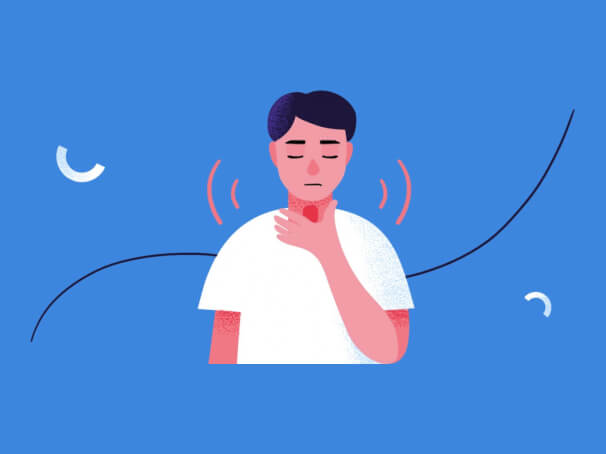
Anxiety causes a lot of unusual reactions in the body, and in some cases it can feel like it changes the way you process air.
It's not uncommon to find that your anxiety is making you yawn more. Yawning is actually a very common symptom of anxiety, especially if you have anxiety attacks, and it's not just because anxiety can leave you fatigued.
In this article, we'll explain why anxiety makes you yawn. You'll also find out how yawning can actually increase your anxiety.
Why We Yawn
Yawning is a mystery of science, and one that is otherwise completely normal. Yawning is most often due to a lack of sleep, but in many cases yawning may be the result of the way your body responds to anxiety, particularly during an anxiety attack.
Anxiety Yawning - Your Breathing During Anxiety
Anxiety has causes some unusual physical responses, but yawning is easily one of the strangest. Yet the reason for yawning is actually fairly simple. When you have anxiety, especially anxiety attacks, your body has a tendency to hyperventilate.
When you hyperventilate, your body starts to feel like it's not getting a full breath. As a response, it tries to yawn, because yawning expands the rib cage and sends a signal to your brain that you did indeed get a full breath. In that sense, yawning is trying to tell your body to relax.
How You Hyperventilate With Anxiety
Hyperventilation is most common during anxiety attacks, but it can actually happen to anyone that suffers from anxiety, and it can happen even when no anxiety is present. The most common ways those with anxiety hyperventilate include:
- Rapid Breathing During a panic attack, it's not uncommon for the nervousness to force your body to breathe more quickly. This dispels too much CO2 without taking in enough oxygen to compensate.
- Tracked Breathing Hyperventilation may also occur when you're thinking about your breathing. This is because the body usually takes very small breaths, because that's all the oxygen it needs. When you think about your breathing, you have a tendency to think you need larger breaths, thus taking in more oxygen than you need. You're still breathing slowly, but because you're mentally controlling your breathing rather than letting your body control it automatically, taking in too much oxygen the result.
- Poor Habits Unfortunately, in many people hyperventilation can become a breathing habit. This generally occurs when you have anxiety attacks, and your body starts to learn to breathe incorrectly. This is one of the reasons that those with anxiety often hyperventilate even when they don't think they have anxiety.
Hyperventilation is, in essence, the act of "over-breathing." It's the body letting out too much carbon dioxide while taking it too much oxygen. That can be strange for many people because hyperventilation feels like you haven't gotten enough oxygen, but in truth it's the opposite.
Of course, because you feel like you haven't gotten a deep breath, you likely have a tendency to try to take even deeper breaths. This will just cause you to hyperventilate more, as you continue to take in too much oxygen.
How Yawning Can Actually Hurt Your Anxiety
It's for this reason that yawning can actually harm your anxiety. Your mind and body have a tendency to try to yawn so that it can feel your ribs expand and help you feel calmer. But this causes two problems:
- Because you're hyperventilating, it may be hard to get your ribs to expand, since it's arguably a forced yawn. Forced yawns don't always feel completed, and when that occurs it can lead to more anxiety over your health.
- When you yawn it's not uncommon to feel a bit better about getting a full breath. But yawning is still taking in a great deal of oxygen, so when you yawn you're still furthering the hyperventilation. Yawning has a calming effect on your worries about breathing, but it may still cause other hyperventilation symptoms, like chest pain, that may make you feel as though you need to yawn more.
In a way, yawning is simply a way that you and your body tell yourself that your heart and lungs are still working. It's a way of curing that "shortness of breath" feeling that occurs when you're anxious. But despite that "benefit," yawning may also be furthering your anxiety, and potentially even triggering more anxiety attacks.
How to Yawn Less
Anxiety yawns cannot be easily turned off, because yawning is still an involuntary movement. In fact, even when you try to force a yawn, your body has to go along with it otherwise a yawn is nearly impossible - your chest simply will not expand to take in a yawn unless your body is willing.
So the key to yawning less is not to stop the yawning, but rather to fight the hyperventilation. You can do this by taking slower, calmer breaths. At first, those breaths will not necessarily decrease that feeling of being unable to take a deep breath, but over time your Oxygen and CO2 levels will be back in the right balance, and your mind and body won't have that desire to take a full yawn again.












